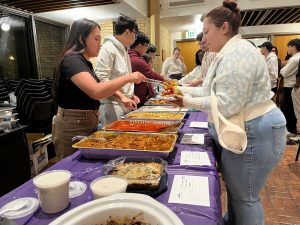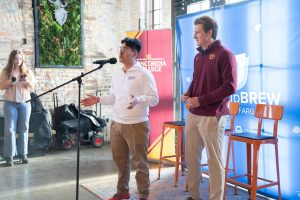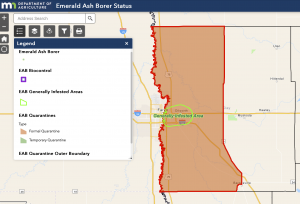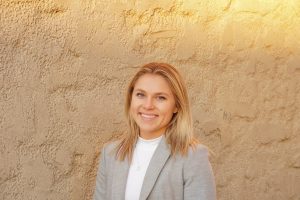Pressures to cheat in college are great. According to a survey by the Center for Academic Integrity, 75 percent of college students admitted to some form of cheating. Other students commit academic integrity violations when they unknowingly use information that should be cited.
International students face a unique challenge in the classroom. Some come from cultures where classmates are expected to share answers on assignments. Others have never written a research paper before. They must quickly learn new expectations about plagiarism and cheating to make it through their college education in the United States.
Amy Watkin, assistant professor of English, teaches a course for international students called “American English: Language and Culture.” Her students practice English reading, listening and grammar. Watkin said international students have distinct challenges when adjusting to the American academic environment.
“I’ve found that almost without exception, whatever continent you’re talking about, the students are coming with a very different experience of citation and research, source use and plagiarism,” Watkin said.
Watkin weaves American citation and research methods into her curriculum to prepare her students for the rest of their time at Concordia. Even with special instruction, the students sometimes get it wrong because they do not understand what material needs to be cited and how it should be cited.
Mona Ibrahim, associate professor of psychology and director of Intercultural Affairs, said incidences of plagiarism and cheating are no higher for international students than they are for domestic American students.
“If one international student is caught plagiarizing or cheating, it’s kind of the representative bias psychologists talk about,” Ibrahim said. “All human beings have biases.”
Ibrahim, a native of Egypt, attended graduate school in the United States and can relate to the experiences of international students at Concordia. She adapted to the challenges of a research-based environment compared to memorization-based curriculum while enjoying the freedom to choose her vocation.
“I gave it my all lovingly,” Ibrahim said.
Watkin thinks there is a break in the system that fails to meet the needs of international students.
“We are quickly reaching a point where accepting a large number of students with a large number of language issues becomes unethical because we don’t have the system in place to help them,” Watkin said. “I keep telling everyone it feels like we could do something great rather than putting band-aids on the problem wherever it appears.”
Concordia had 118 international students on campus during the fall semester, according to the Office of Enrollment.
The solution, Watkin said, is a liaison appointed to provide direction and educate faculty on how to communicate with and teach students from different cultures and backgrounds. This one person or office would be connected to the English department but also in close connection to the Office of Intercultural Affairs and other departments. Other universities including North Dakota State University have moved toward this initiative.
Ibrahim thinks the problem can be solved more simply. All students could benefit from more education about academic integrity.
“Mainstream students also have these issues,” Ibrahim said.
In the meantime, it is up to the faculty and students to work out issues of academic integrity as they arise. When the situation calls for punitive action, Jim Aageson, dean of arts and sciences, gets involved.
Aageson was unsure about the number of international students who are officially reported at Concordia each year. The statistics are protected under Family Educational Rights and Privacy Act. Watkin could only think of two students in the last three years who had been reported to Aageson. The number of international students who struggle with research assignments is far greater than the number of students who are punished.
Most plagiarism problems never make it to Aageson’s office because the instructor often realizes that the student did not understand how to cite correctly.
“I’ve had conversations with international students who just aren’t clear where that line is,” Aageson said.
Watkin, Ibrahim and Aageson agree that students, whether foreign or domestic, should be given the benefit of the doubt first before jumping to conclusions about whether they meant to plagiarize.
“To students who travel long distances to come here and benefit of the education we provide and enrich our community, I am unapologetic about trying to provide that inviting and hospitable community educationally to help them succeed and be beneficiaries of this opportunity,” Aageson said. “I don’t think we should do anything less than that.”






Be First to Comment